
Our team of experts are committed to providing home sellers with clear communication, consistency, and personalized service throughout the escrow process. But the exciting process of selling a home involves so much more for the homeowner. The checklist below can help reduce stress and organize the selling process for our valued clients.
Immediately Upon Acceptance Of The Contract
- Follow-up on any terms specified in the contract (clearance letters, providing homeowner association paperwork, etc.)
- Make any repairs specified in the contract
- Provide the current mortgage loan(s) information and/or equity line of credit information to your agent (this should include your account numbers, contact information for the lender(s) and your personal information)
Deliver The Following To Your Escrow Officer
- Your forwarding address
- Any existing payoff information
- Identify leased equipment
- Homeowner Association information
- Utilities (if they are to be paid out of escrow)
- Judgment/Liens
- Any name changes since vesting
During The Home Inspection
- You should not be onsite during the inspection, but your real estate agent may be there as your representative
- If possible, be accessible by phone to answer any questions
- Provide your agent with keys to any areas (crawlspaces, attics, detached buildings, etc) that the inspector will need to access
- If the property is currently vacant, ensure that all utilities are on prior to the inspection
One To Two Weeks Following The Acceptance Date Of The Contract
- Review any inspection amendment from the buyer with your agent and begin making agreed repairs
- Make arrangements for a moving truck or schedule your moving service
- Provide your agent with your preferred closing time
Two Weeks Before Closing Date
- Go to USPS.com/move to change your address online or get a change of address package from the post office.
- Begin notifying family, friends, debtors, etc of address change
- Begin collecting information to pass on to the new owner (receipts for appliances, warranty information, owner’s manuals, repair and contractor contact information and dates of service)
One Week Before Closing
- Call your utility companies to schedule the final readings and disconnect dates
- Get directions to escrow office from your real estate agent or determine location for a mobile escrow signing
- Organize receipts and information in relation to the work done to satisfy the inspection amendment. Provide copies to your real estate agent
Day Before Signing Appointment
- Review the preliminary Settlement Statement to verify that the terms of the contract are correct and pay special attention to the line items for water bills, homeowner association dues, and mortgage balances
- If you have any concerns, discuss them with your agent
- If there is a chance of any dispute, your agent may advise you to bring proof of payment to the closing
Day Of Signing
- Have two pieces of valid ID (one being photo ID) available at your signing appointment: Driver’s License, State ID, Passport, or Green Card
- If funds are required to close, be prepared to bring the monies in the form of a cashier’s check or wire transfer. These funds need to be received by the Escrow office 24 hours in advance of the recording/closing date indicated on your Purchase and Sale Agreement.
- Give the new owner your forwarding address and phone number in case anything is accidentally sent to you at the old address
 Download Pre-Closing Checklist
Download Pre-Closing Checklist
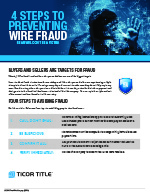


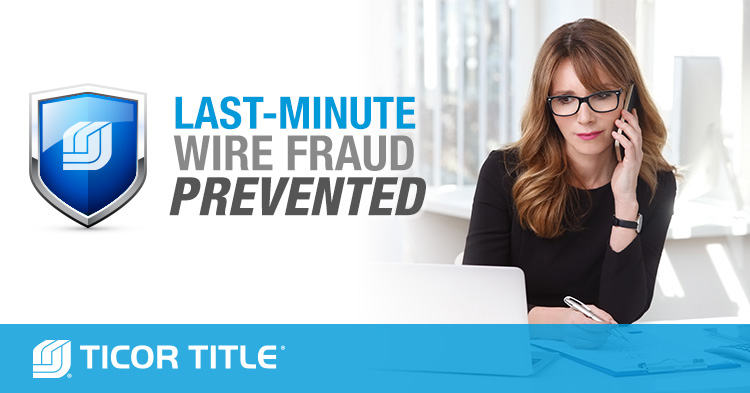
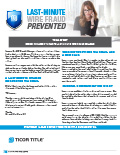
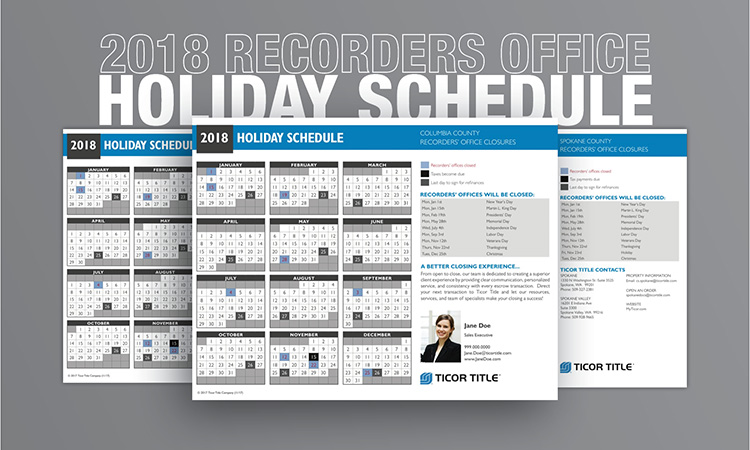
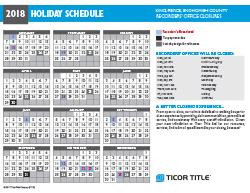 View or download the Puget Sound Area Recorder’s Office Holiday Closures calendar here.
View or download the Puget Sound Area Recorder’s Office Holiday Closures calendar here.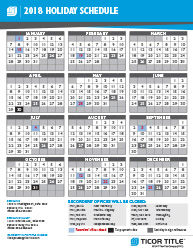 View or download the Spokane Area Recorder’s Office Holiday Closures calendar here.
View or download the Spokane Area Recorder’s Office Holiday Closures calendar here. Teri D., Closing Officer at one of our agencies, was processing a sale of a vacant, waterfront lot. The sales price was $205,000; a cash purchase. The purchaser paid $5,000 as earnest money and was working with a builder on plans to build a home on the lot.
Teri D., Closing Officer at one of our agencies, was processing a sale of a vacant, waterfront lot. The sales price was $205,000; a cash purchase. The purchaser paid $5,000 as earnest money and was working with a builder on plans to build a home on the lot.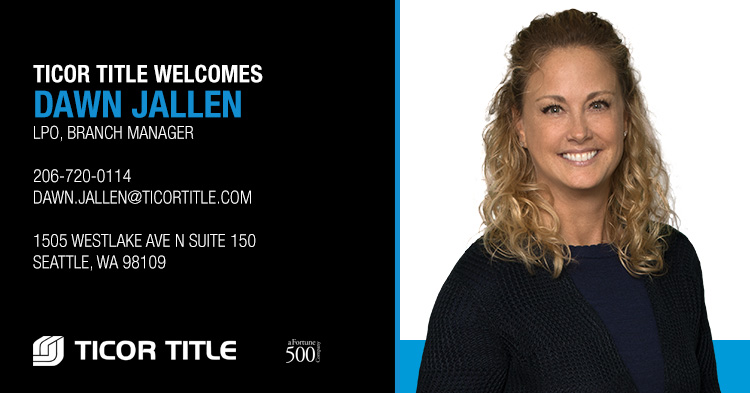
 Closing on a home can be an exciting and stressful process all at the same time. With so many potential speed bumps it’s important we make your closing flow as smooth as possible. At Ticor we believe one of the easiest ways to accomplish this is by educating buyers and sellers as they prepare for the big day. In particular we’d like to highlight some of the simple steps a buyer/seller can take to expedite the process. We call these steps the “Keys to a Successful Closing”.
Closing on a home can be an exciting and stressful process all at the same time. With so many potential speed bumps it’s important we make your closing flow as smooth as possible. At Ticor we believe one of the easiest ways to accomplish this is by educating buyers and sellers as they prepare for the big day. In particular we’d like to highlight some of the simple steps a buyer/seller can take to expedite the process. We call these steps the “Keys to a Successful Closing”.